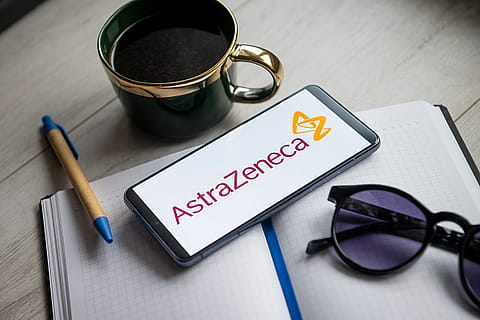AstraZeneca admits its vaccine can cause rare condition TTS; WHO explains what it is
AstraZeneca’s vaccine was sold as Covishield in India. U.K.’s drugmaker says TTS could occur in “very rare” instances after its vaccine use and may lead to blood clotting and low platelet count

British drugmaker AstraZeneca has for the first time officially confessed via court submission that its Covid-19 vaccine, which was sold in India as Covishield and in other parts of the world as Vaxzevria could cause a rare side-effect known as TTS i.e. Thrombosis Thrombocytopenia Syndrome.
The legal document, submitted to a U.K. high court in February, stated that TTS, which could occur in “very rare” instances after its vaccine use, could lead to major health issues like blood clotting and low platelet count.
The report, first published by a British newspaper, says the first case regarding the rare effect of the widely-used vaccine was experienced by Jamie Scott, a U.K.-based man who was left with a permanent brain injury after bleeding in brain and blood clotting. Scott, a father of two, had to stop working permanently after a rare diagnosis in April 2021.
The company is now contesting the claims by Scott but has accepted via court documents that the vaccine could "in very rare cases" cause TTS.
Scott says AstraZeneca inflated claims regarding the vaccine's effectiveness and tried to hide potential risks behind its usage. After taking the vaccine during the pandemic, he initially reported major headaches, vomiting and even had difficulty in speaking. Later on, Scott was diagnosed with blood clotting and haemorrhage. Even after his successful surgery, Scott's family claims he developed permanent issues in communicating or even reading or writing. Though the U.K. government has secured AstraZeneca from legal action, the victim received a relief payout worth 120,000 British pounds from the U.K. government under the Vaccine Damage Payment (VDP) scheme.
Scott is not the one who has dragged the company to court but 51 more cases have been lodged against AstraZeneca in the U.K. courts. Many victims are seeking financial relief of up to 100 million British pounds from the Cambridge-based company.
In India, the vaccine developed by AstraZeneca and Oxford University during the Covid pandemic was sold as Covishield by domestic vaccine player Serum Institute of India. The vaccine was one of the two main players, along with Bharat Biotech's vaccine, and was part of the national vaccination programme.
Recommended Stories
Serum Institute of India is yet to issue any statement on the matter. The U.K. government has also not issued any clarification so far.
What is TTS
The World Health Organisation (WHO) in its April 20, 2023, publication of guidelines had said that Thrombotic Thrombocytopenia Syndrome (TTS) had emerged as a "new adverse event" following immunisation in individuals vaccinated with COVID-19 non-replicant adenovirus vector-based vaccines of AstraZeneca and Johnson & Johnson.
TTS is a rare adverse event but a serious condition, which can cause unusual blood clotting with low platelets.
(INR CR)
The overall incidence of TTS after such immunisation, however, is low, as per the WHO. “The cumulative incidence of TTS following vaccination with a non-replicating adenovirus vector-based vaccine ranges from 0.5 to 6.8 cases per 100,000 vaccinees.”
The incidence rates also differ depending on the vaccine, age, sex, geographical distribution and interpretation of the case definition, it said. The data also shows that most TTS cases have been reported within 3 to 30 days following vaccination with a COVID-19 non-replicating adenovirus vector-based vaccine.
Health experts say TTS should be suspected in patients presenting with severe, persistent, or unusual headache, blurred vision, focal weakness or numbness, persistent abdominal pain with or without vomiting, sudden onset of breathing difficulty, chest pain or limb swelling or pains, and unusual skin bruising. The WHO has recommended that all patients who experience TTS after COVID-19 vaccination should receive anti-coagulation.